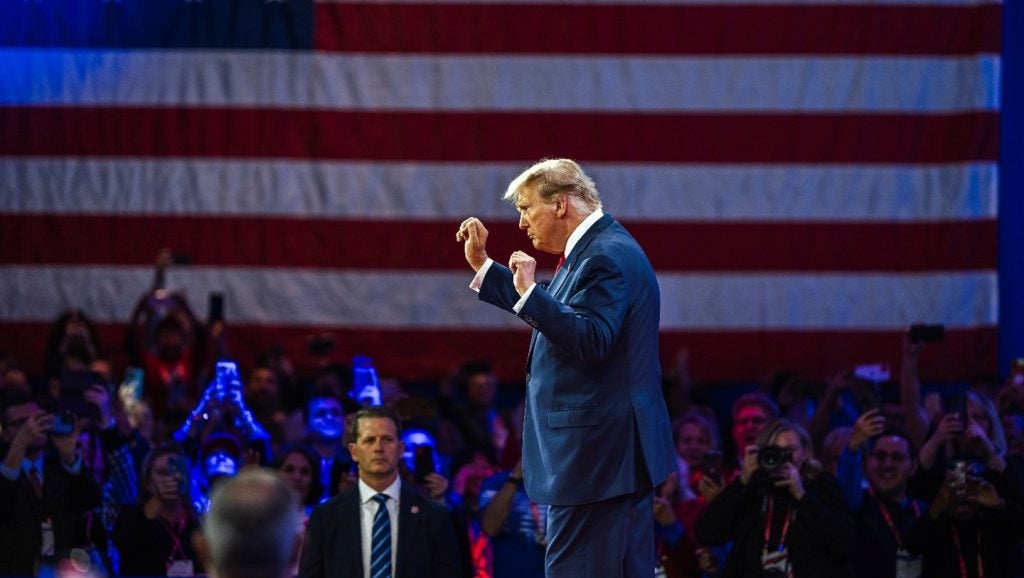US defence policy in an age of strategic competition hinges on solid alliances, observed the Secretary of State for Defense, Lloyd J. Austin, in a speech at the Reagan National Defense Forum on 7 December 2024.
Austin, who now has just over a month left in government, emphasised that “America is weaker when it stands alone.” This was his advice to president-elect Donald Trump as the Biden administration prepares “to pass the baton” on 20 January 2025.
Fearing the rising tide of isolationism, largely based on Trump’s reversion to US troop deployments abroad, Austin warned that “there is no such thing as a safe retreat from today’s interwoven world.”

US isolationism is a foreign and self-defence policy that has its roots in the years after the country secured its independence from Great Britain in the late eighteenth-century, and could be said to have lasted until 1941 when the US entered World War II. It is a policy of non-interventionism and neutrality as the country sought to act solely on its own interests.
However; Trump’s second term appears to be guided by, perhaps, a more damaging conception of the international order than isolationism. His geopolitical model is based on his sympathy for so-called ‘strongman’ politics, wherein might is right. This model threatens ties with Nato, and foremost Ukraine, more than any notion of global retreat.
Selling out Ukraine
Russia continues to test Ukraine’s defences in Kursk and Eastern Ukraine. Marginal Russian gains are being made towards Pokrovsk and Kurakhove as the aggressor seeks to “level the frontline in Western Donetsk.”
These gains have come at the cost of up to 1,500 Russian losses per day in November, according to the UK government.
In the backdrop, Trump’s position is to sell out Ukraine in an effort to bring an end to the (nearly) three-year long war in Eastern Europe. This decision comes as part of the future US president’s vision to ‘end all wars’.
This policy direction is not akin to taking a backseat in global affairs and fixating on its own territorial interests. Rather, forcing Ukraine to the negotiating table on the backfoot will break with the Nato policy of supporting Ukraine come what may.
Future negotiations, which Ukraine’s president Volodymyr Zelenskyy mentioned for the first time in recent weeks, are becoming a reality. Ukraine is still on the backfoot in military terms, even if Russia’s global presence has taken a hit with the collapse of the Assad regime in Syria this past week.

However, the Ukrainian head of state is still working to secure the best for Ukraine before any prospective talks. Last week, he stated that “the peace [must be] just for all of us” during a trilateral discussion with Trump and the French president, Emmanuel Macron.
On the contrary, Trump’s policy will inevitably cede Ukrainian territory to Russia as part of a balance-of-power system in which America and its adversaries split control. As a result, this will bring about a frozen conflict in the region that will inevitably thaw into armed conflict in the coming years.
Strangely, this would also send an alarming and inconsistent message to the People’s Republic of China (PRC), whose military aggression is challenging US values in the Indo-Pacific region.
Indo-Pacific focus
Trump’s Ukraine policy is inconsistent with his China policy, which will likely be in line with that of the Biden administration when it comes to defence and deterrence in the Indo-Pacific.
"Allowing the PRC to ‘take’ the island [Taiwan] will make president Trump look weak on China."
Fox Walker, GlobalData defence analyst
“Shielding Taiwanese democracy and human rights concerns may take a backseat in the second Trump administration.” However, “allowing the PRC to ‘take’ the island will make president Trump look weak on China in the eyes of many across the globe,” according to Fox Walker, GlobalData defence analyst, in a briefing on ‘Arms Transfers in the Second Trump Administration’ (8 November 2024).
This is especially true since China represents a more dangerous strategic peer to the US economically and militarily. Should the US fail to deter the PRC in the Indo-Pacific – where 60% of global shipping currently passes, and is anticipated to account for more than half of global GDP – then US strategic interests will be compromised.
“If his campaign promises are any guide,” Walker summarised, “the second Trump administration is likely to dramatically raise tensions with Nato allies and Ukraine, while providing support to those who show him favour or advance the strategic competition with China.”









